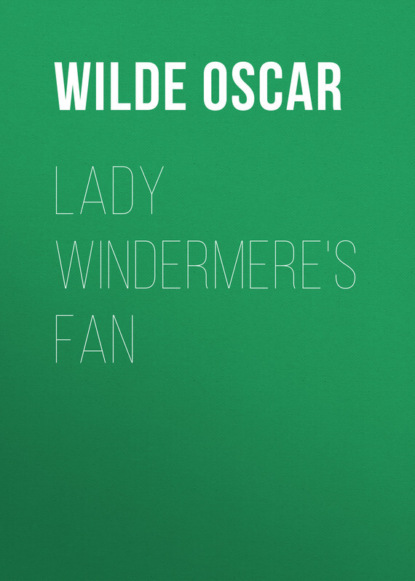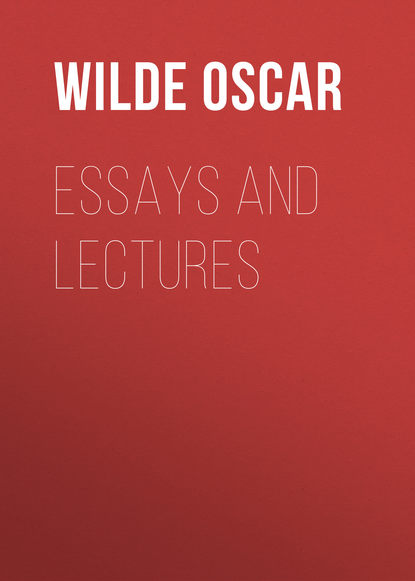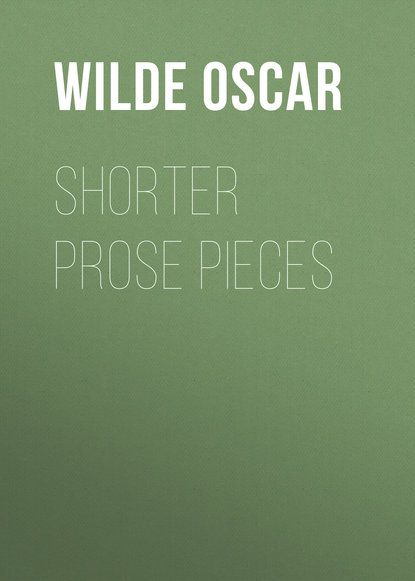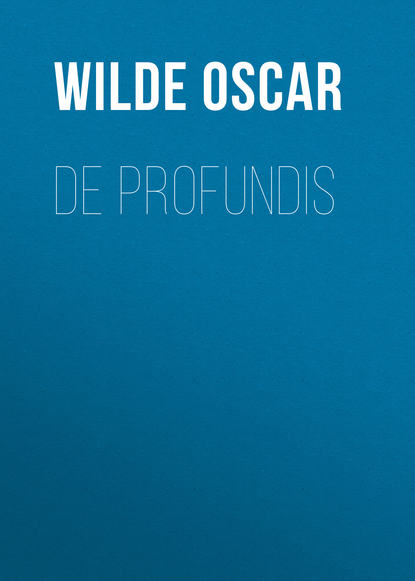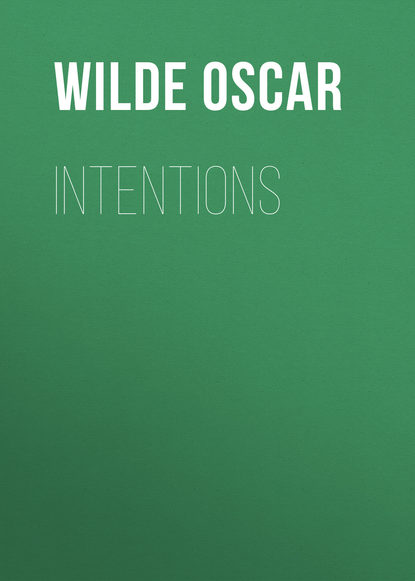 Полная версия
Полная версияПолная версия:
Оскар Уайльд Reviews
- + Увеличить шрифт
- - Уменьшить шрифт

Oscar Wilde
Reviews
To Mrs. CAREW
The apparently endless difficulties against which I have contended, and am contending, in the management of Oscar Wilde’s literary and dramatic property have brought me many valued friends; but only one friendship which seemed as endless; one friend’s kindness which seemed to annul the disappointments of eight years. That is why I venture to place your name on this volume with the assurance of the author himself who bequeathed to me his works and something of his indiscretion.
ROBERT ROSS
May 12th, 1908.
INTRODUCTION
The editor of writings by any author not long deceased is censured sooner or later for his errors of omission or commission. I have decided to err on the side of commission and to include in the uniform edition of Wilde’s works everything that could be identified as genuine. Wilde’s literary reputation has survived so much that I think it proof against any exhumation of articles which he or his admirers would have preferred to forget. As a matter of fact, I believe this volume will prove of unusual interest; some of the reviews are curiously prophetic; some are, of course, biassed by prejudice hostile or friendly; others are conceived in the author’s wittiest and happiest vein; only a few are colourless. And if, according to Lord Beaconsfield, the verdict of a continental nation may be regarded as that of posterity, Wilde is a much greater force in our literature than even friendly contemporaries ever supposed he would become.
It should be remembered, however, that at the time when most of these reviews were written Wilde had published scarcely any of the works by which his name has become famous in Europe, though the protagonist of the æsthetic movement was a well-known figure in Paris and London. Later he was recognised – it would be truer to say he was ignored – as a young man who had never fulfilled the high promise of a distinguished university career although his volume of Poems had reached its fifth edition, an unusual event in those days. He had alienated a great many of his Oxford contemporaries by his extravagant manner of dress and his methods of courting publicity. The great men of the previous generation, Wilde’s intellectual peers, with whom he was in artistic sympathy, looked on him askance. Ruskin was disappointed with his former pupil, and Pater did not hesitate to express disapprobation to private friends; while he accepted incense from a disciple, he distrusted the thurifer.
From a large private correspondence in my possession I gather that it was, oddly enough, in political and social centres that Wilde’s amazing powers were rightly appreciated and where he was welcomed as the most brilliant of living talkers. Before he had published anything except his Poems, the literary dovecots regarded him with dislike, and when he began to publish essays and fairy stories, the attitude was not changed; it was merely emphasised in the public press. His first dramatic success at the St. James’s Theatre gave Wilde, of course, a different position, and the dislike became qualified with envy. Some of the younger men indeed were dazzled, but with few exceptions their appreciation was expressed in an unfortunate manner. It is a consolation or a misfortune that the wrong kind of people are too often correct in their prognostications of the future; the far-seeing are also the foolish.
From these reviews which illustrate the middle period of Wilde’s meteoric career, between the æsthetic period and the production of Lady Windermere’s Fan, we learn his opinion of the contemporaries who thought little enough of him. That he revised many of these opinions, notably those that are harsh, I need scarcely say; and after his release from prison he lost much of his admiration for certain writers. I would draw special attention to those reviews of Mr. Swinburne, Mr. Wilfrid Blunt, Mr. Alfred Austin, the Hon. John Collier, Mr. Brander Matthews and Sir Edwin Arnold, Rossetti, Pater, Henley and Morris; they have more permanent value than the others, and are in accord with the wiser critical judgments of to-day.
For leave to republish the articles from the Pall Mall Gazette I am indebted to Mr. William Waldorf Astor, the owner of the copyrights, by arrangement with whom they are here reprinted. I have to thank most cordially Messrs. Cassell and Company for permitting me to reproduce the editorial articles and reviews contributed by Wilde to the Woman’s World; the editor and proprietor of the Nation for leave to include the two articles from the Speaker; and the editor of the Saturday Review for a similar courtesy. For identifying many of the anonymous articles I am indebted to Mr. Arthur Humphreys, not the least of his kindnesses in assisting the publication of this edition; for the trouble of editing, arrangement, and collecting of material I am under obligations to Mr. Stuart Mason for which this acknowledgment is totally inadequate.
ROBERT ROSS
REFORM CLUB,
May 12th, 1908
DINNERS AND DISHES
(Pall Mall Gazette, March 7, 1885.)
A man can live for three days without bread, but no man can live for one day without poetry, was an aphorism of Baudelaire. You can live without pictures and music but you cannot live without eating, says the author of Dinners and Dishes; and this latter view is, no doubt, the more popular. Who, indeed, in these degenerate days would hesitate between an ode and an omelette, a sonnet and a salmis? Yet the position is not entirely Philistine; cookery is an art; are not its principles the subject of South Kensington lectures, and does not the Royal Academy give a banquet once a year? Besides, as the coming democracy will, no doubt, insist on feeding us all on penny dinners, it is well that the laws of cookery should be explained: for were the national meal burned, or badly seasoned, or served up with the wrong sauce a dreadful revolution might follow.
Under these circumstances we strongly recommend Dinners and Dishes to every one: it is brief and concise and makes no attempt at eloquence, which is extremely fortunate. For even on ortolans who could endure oratory? It also has the advantage of not being illustrated. The subject of a work of art has, of course, nothing to do with its beauty, but still there is always something depressing about the coloured lithograph of a leg of mutton.
As regards the author’s particular views, we entirely agree with him on the important question of macaroni. ‘Never,’ he says, ‘ask me to back a bill for a man who has given me a macaroni pudding.’ Macaroni is essentially a savoury dish and may be served with cheese or tomatoes but never with sugar and milk. There is also a useful description of how to cook risotto – a delightful dish too rarely seen in England; an excellent chapter on the different kinds of salads, which should be carefully studied by those many hostesses whose imaginations never pass beyond lettuce and beetroot; and actually a recipe for making Brussels sprouts eatable. The last is, of course, a masterpiece.
The real difficulty that we all have to face in life is not so much the science of cookery as the stupidity of cooks. And in this little handbook to practical Epicureanism the tyrant of the English kitchen is shown in her proper light. Her entire ignorance of herbs, her passion for extracts and essences, her total inability to make a soup which is anything more than a combination of pepper and gravy, her inveterate habit of sending up bread poultices with pheasants, – all these sins and many others are ruthlessly unmasked by the author. Ruthlessly and rightly. For the British cook is a foolish woman who should be turned for her iniquities into a pillar of salt which she never knows how to use.
But our author is not local merely. He has been in many lands; he has eaten back-hendl at Vienna and kulibatsch at St. Petersburg; he has had the courage to face the buffalo veal of Roumania and to dine with a German family at one o’clock; he has serious views on the right method of cooking those famous white truffles of Turin of which Alexandre Dumas was so fond; and, in the face of the Oriental Club, declares that Bombay curry is better than the curry of Bengal. In fact he seems to have had experience of almost every kind of meal except the ‘square meal’ of the Americans. This he should study at once; there is a great field for the philosophic epicure in the United States. Boston beans may be dismissed at once as delusions, but soft-shell crabs, terrapin, canvas-back ducks, blue fish and the pompono of New Orleans are all wonderful delicacies, particularly when one gets them at Delmonico’s. Indeed, the two most remarkable bits of scenery in the States are undoubtedly Delmonico’s and the Yosemité Valley; and the former place has done more to promote a good feeling between England and America than anything else has in this century.
We hope the ‘Wanderer’ will go there soon and add a chapter to Dinners and Dishes, and that his book will have in England the influence it deserves. There are twenty ways of cooking a potato and three hundred and sixty-five ways of cooking an egg, yet the British cook, up to the present moment, knows only three methods of sending up either one or the other.
Dinners and Dishes. By ‘Wanderer.’ (Simpkin and Marshall.)
A MODERN EPIC
(Pall Mall Gazette, March 13, 1885.)
In an age of hurry like ours the appearance of an epic poem more than five thousand lines in length cannot but be regarded as remarkable. Whether such a form of art is the one most suited to our century is a question. Edgar Allan Poe insisted that no poem should take more than an hour to read, the essence of a work of art being its unity of impression and of effect. Still, it would be difficult to accept absolutely a canon of art which would place the Divine Comedy on the shelf and deprive us of the Bothwell of Mr. Swinburne. A work of art is to be estimated by its beauty not by its size, and in Mr. Wills’s Melchior there is beauty of a rich and lofty character.
Remembering the various arts which have yielded up their secrets to Mr. Wills, it is interesting to note in his poems, here the picturesque vision of the painter, here the psychology of the novelist, and here the playwright’s sense of dramatic situation. Yet these things, which are the elements of his work of art though we arbitrarily separate them in criticism, are in the work itself blended and made one by the true imaginative and informing power. For Melchior is not a piece of poetic writing merely; it is that very rare thing, a poem.
It is dedicated to Mr. Robert Browning, not inappropriately, as it deals with that problem of the possible expression of life through music, the value of which as a motive in poetry Mr. Browning was the first to see. The story is this. In one of the little Gothic towns of Northern Germany lives Melchior, a dreamer and a musician. One night he rescues by chance a girl from drowning and lodges her in a convent of holy women. He grows to love her and to see in her the incarnation of that St. Cecily whom, with mystic and almost mediæval passion, he had before adored. But a priest separates them, and Melchior goes mad. An old doctor, who makes a study of insanity, determines to try and cure him, and induces the girl to appear to him, disguised as St. Cecily herself, while he sits brooding at the organ. Thinking her at first to be indeed the Saint he had worshipped, Melchior falls in ecstasy at her feet, but soon discovering the trick kills her in a sudden paroxysm of madness. The horror of the act restores his reason; but, with the return of sanity, the dreams and visions of the artist’s nature begin to vanish; the musician sees the world not through a glass but face to face, and he dies just as the world is awakening to his music.
The character of Melchior, who inherits his music from his father, and from his mother his mysticism, is extremely fascinating as a psychological study. Mr. Wills has made a most artistic use of that scientific law of heredity which has already strongly influenced the literature of this century, and to which we owe Dr. Holmes’s fantastic Elsie Venner, Daniel Deronda– that dullest of masterpieces – and the dreadful Rougon-Macquart family with whose misdeeds M. Zola is never weary of troubling us.
Blanca, the girl, is a somewhat slight sketch, but then, like Ophelia, she is merely the occasion of a tragedy and not its heroine. The rest of the characters are most powerfully drawn and create themselves simply and swiftly before us as the story proceeds, the method of the practised dramatist being here of great value.
As regards the style, we notice some accidental assonances of rhyme which in an unrhymed poem are never pleasing; and the unfinished short line of five or six syllables, however legitimate on the stage where the actor himself can make the requisite musical pause, is not a beauty in a blank verse poem, and is employed by Mr. Wills far too frequently. Still, taken as a whole, the style has the distinction of noble melody.
There are many passages which, did space permit us, we would like to quote, but we must content ourselves with saying that in Melchior we find not merely pretty gems of rich imagery and delicate fancy, but a fine imaginative treatment of many of the most important modern problems, notably of the relation of life to art. It is a pleasure to herald a poem which combines so many elements of strength and beauty.
Melchior. By W. G. Wills, author of Charles I., Olivia, etc., and writer of Claudian. (Macmillan and Co.)
SHAKESPEARE ON SCENERY
(Dramatic Review, March 14, 1885.)
I have often heard people wonder what Shakespeare would say, could he see Mr. Irving’s production of his Much Ado About Nothing, or Mr. Wilson Barrett’s setting of his Hamlet. Would he take pleasure in the glory of the scenery and the marvel of the colour? Would he be interested in the Cathedral of Messina, and the battlements of Elsinore? Or would he be indifferent, and say the play, and the play only, is the thing?
Speculations like these are always pleasurable, and in the present case happen to be profitable also. For it is not difficult to see what Shakespeare’s attitude would be; not difficult, that is to say, if one reads Shakespeare himself, instead of reading merely what is written about him.
Speaking, for instance, directly, as the manager of a London theatre, through the lips of the chorus in Henry V., he complains of the smallness of the stage on which he has to produce the pageant of a big historical play, and of the want of scenery which obliges him to cut out many of its most picturesque incidents, apologises for the scanty number of supers who had to play the soldiers, and for the shabbiness of the properties, and, finally, expresses his regret at being unable to bring on real horses.
In the Midsummer Night’s Dream, again, he gives us a most amusing picture of the straits to which theatrical managers of his day were reduced by the want of proper scenery. In fact, it is impossible to read him without seeing that he is constantly protesting against the two special limitations of the Elizabethan stage – the lack of suitable scenery, and the fashion of men playing women’s parts, just as he protests against other difficulties with which managers of theatres have still to contend, such as actors who do not understand their words; actors who miss their cues; actors who overact their parts; actors who mouth; actors who gag; actors who play to the gallery, and amateur actors.
And, indeed, a great dramatist, as he was, could not but have felt very much hampered at being obliged continually to interrupt the progress of a play in order to send on some one to explain to the audience that the scene was to be changed to a particular place on the entrance of a particular character, and after his exit to somewhere else; that the stage was to represent the deck of a ship in a storm, or the interior of a Greek temple, or the streets of a certain town, to all of which inartistic devices Shakespeare is reduced, and for which he always amply apologises. Besides this clumsy method, Shakespeare had two other substitutes for scenery – the hanging out of a placard, and his descriptions. The first of these could hardly have satisfied his passion for picturesqueness and his feeling for beauty, and certainly did not satisfy the dramatic critic of his day. But as regards the description, to those of us who look on Shakespeare not merely as a playwright but as a poet, and who enjoy reading him at home just as much as we enjoy seeing him acted, it may be a matter of congratulation that he had not at his command such skilled machinists as are in use now at the Princess’s and at the Lyceum. For had Cleopatra’s barge, for instance, been a structure of canvas and Dutch metal, it would probably have been painted over or broken up after the withdrawal of the piece, and, even had it survived to our own day, would, I am afraid, have become extremely shabby by this time. Whereas now the beaten gold of its poop is still bright, and the purple of its sails still beautiful; its silver oars are not tired of keeping time to the music of the flutes they follow, nor the Nereid’s flower-soft hands of touching its silken tackle; the mermaid still lies at its helm, and still on its deck stand the boys with their coloured fans. Yet lovely as all Shakespeare’s descriptive passages are, a description is in its essence undramatic. Theatrical audiences are far more impressed by what they look at than by what they listen to; and the modern dramatist, in having the surroundings of his play visibly presented to the audience when the curtain rises, enjoys an advantage for which Shakespeare often expresses his desire. It is true that Shakespeare’s descriptions are not what descriptions are in modern plays – accounts of what the audience can observe for themselves; they are the imaginative method by which he creates in the mind of the spectators the image of that which he desires them to see. Still, the quality of the drama is action. It is always dangerous to pause for picturesqueness. And the introduction of self-explanatory scenery enables the modern method to be far more direct, while the loveliness of form and colour which it gives us, seems to me often to create an artistic temperament in the audience, and to produce that joy in beauty for beauty’s sake, without which the great masterpieces of art can never be understood, to which, and to which only, are they ever revealed.
To talk of the passion of a play being hidden by the paint, and of sentiment being killed by scenery, is mere emptiness and folly of words. A noble play, nobly mounted, gives us double artistic pleasure. The eye as well as the ear is gratified, and the whole nature is made exquisitely receptive of the influence of imaginative work. And as regards a bad play, have we not all seen large audiences lured by the loveliness of scenic effect into listening to rhetoric posing as poetry, and to vulgarity doing duty for realism? Whether this be good or evil for the public I will not here discuss, but it is evident that the playwright, at any rate, never suffers.
Indeed, the artist who really has suffered through the modern mounting of plays is not the dramatist at all, but the scene-painter proper. He is rapidly being displaced by the stage-carpenter. Now and then, at Drury Lane, I have seen beautiful old front cloths let down, as perfect as pictures some of them, and pure painter’s work, and there are many which we all remember at other theatres, in front of which some dialogue was reduced to graceful dumb-show through the hammer and tin-tacks behind. But as a rule the stage is overcrowded with enormous properties, which are not merely far more expensive and cumbersome than scene-paintings, but far less beautiful, and far less true. Properties kill perspective. A painted door is more like a real door than a real door is itself, for the proper conditions of light and shade can be given to it; and the excessive use of built up structures always makes the stage too glaring, for as they have to be lit from behind, as well as from the front, the gas-jets become the absolute light of the scene instead of the means merely by which we perceive the conditions of light and shadow which the painter has desired to show us.
So, instead of bemoaning the position of the playwright, it were better for the critics to exert whatever influence they may possess towards restoring the scene-painter to his proper position as an artist, and not allowing him to be built over by the property man, or hammered to death by the carpenter. I have never seen any reason myself why such artists as Mr. Beverley, Mr. Walter Hann, and Mr. Telbin should not be entitled to become Academicians. They have certainly as good a claim as have many of those R.A.’s whose total inability to paint we can see every May for a shilling.
And lastly, let those critics who hold up for our admiration the simplicity of the Elizabethan Stage, remember that they are lauding a condition of things against which Shakespeare himself, in the spirit of a true artist, always strongly protested.
A BEVY OF POETS
(Pall Mall Gazette, March 27, 1885.)
This spring the little singers are out before the little sparrows and have already begun chirruping. Here are four volumes already, and who knows how many more will be given to us before the laburnums blossom? The best-bound volume must, of course, have precedence. It is called Echoes of Memory, by Atherton Furlong, and is cased in creamy vellum and tied with ribbons of yellow silk. Mr. Furlong’s charm is the unsullied sweetness of his simplicity. Indeed, we can strongly recommend to the School-Board the Lines on the Old Town Pump as eminently suitable for recitation by children. Such a verse, for instance, as:
I hear the little children say(For the tale will never die)How the old pump flowed both night and dayWhen the brooks and the wells ran dry,has all the ring of Macaulay in it, and is a form of poetry which cannot possibly harm anybody, even if translated into French. Any inaccurate ideas of the laws of nature which the children might get from the passage in question could easily be corrected afterwards by a lecture on Hydrostatics. The poem, however, which gives us most pleasure is the one called The Dear Old Knocker on the Door. It is appropriately illustrated by Mr. Tristram Ellis. We quote the concluding verses of the first and last stanzas:
Blithe voices then so dearSend up their shouts once more,Then sounds again on mem’ry’s earThe dear old knocker on the door.When mem’ry turns the keyWhere time has placed my score,Encased ’mid treasured thoughts must beThe dear old knocker on the door.The cynic may mock at the subject of these verses, but we do not. Why not an ode on a knocker? Does not Victor Hugo’s tragedy of Lucrece Borgia turn on the defacement of a doorplate? Mr. Furlong must not be discouraged. Perhaps he will write poetry some day. If he does we would earnestly appeal to him to give up calling a cock ‘proud chanticleer.’ Few synonyms are so depressing.
Having been lured by the Circe of a white vellum binding into the region of the pump and doormat, we turn to a modest little volume by Mr. Bowling of St. John’s College, Cambridge, entitled Sagittulæ. And they are indeed delicate little arrows, for they are winged with the lightness of the lyric and barbed daintily with satire. Æsthesis and Athletes is a sweet idyll, and nothing can be more pathetic than the Tragedy of the XIX. Century, which tells of a luckless examiner condemned in his public capacity to pluck for her Little-go the girl graduate whom he privately adores. Girton seems to be having an important influence on the Cambridge school of poetry. We are not surprised. The Graces are the Graces always, even when they wear spectacles.
Then comes Tuberose and Meadowsweet, by Mr. Mark André Raffalovich. This is really a remarkable little volume, and contains many strange and beautiful poems. To say of these poems that they are unhealthy and bring with them the heavy odours of the hothouse is to point out neither their defect nor their merit, but their quality merely. And though Mr. Raffalovich is not a wonderful poet, still he is a subtle artist in poetry. Indeed, in his way he is a boyish master of curious music and of fantastic rhyme, and can strike on the lute of language so many lovely chords that it seems a pity he does not know how to pronounce the title of his book and the theme of his songs. For he insists on making ‘tuberose’ a trisyllable always, as if it were a potato blossom and not a flower shaped like a tiny trumpet of ivory. However, for the sake of his meadowsweet and his spring-green binding this must be forgiven him. And though he cannot pronounce ‘tuberose’ aright, at least he can sing of it exquisitely.

